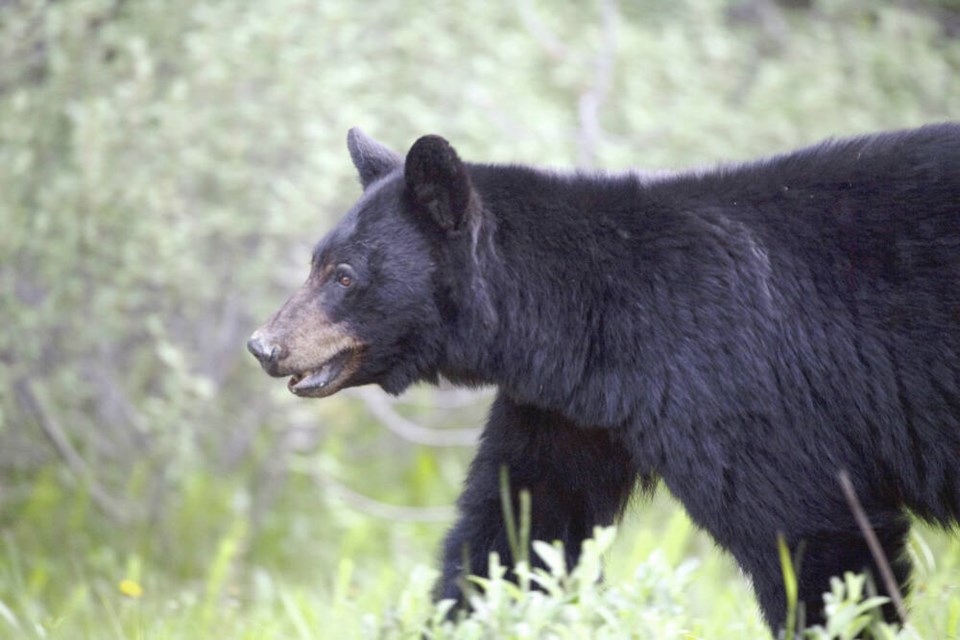A black bear and her three cubs have been captured and moved out of an urban neighbourhood on the West Shore for the second time in two months,
The trio were initially taken from a busy area near Glen Lake in Langford to a wilderness site outside the city in mid-September, according to the Conservation Officer Service.
But the bears returned less than three weeks later and reports of sightings started surfacing in October in the Triangle Mountain and Royal Bay areas.
More recently, the bear family had been lingering in an area near Veterans Memorial Parkway, conservation officers said.
After consulting with provincial wildlife biologists, the officers moved the bears again, but this time, they were moved further afield to an unidentified wilderness area on southern Vancouver Island.
The Conservation Officer Service said in a statement on Wednesday that the sow and three cubs have not shown any aggressive behaviour, but officers don’t want the bears to become “comfortable with the presence of people in an urban environment.”
The service is urging residents to secure attractants like garbage around their properties to help prevent human-wildlife conflicts.
In particular, residents are being asked to ensure fruit is picked from trees and the ground.
Meanwhile, three black bear cubs orphaned after their mother was hit by a driver on West Coast Road on Nov. 14 remain on the lam.
The Conservation Officer Service wants to capture the 10-month-old cubs for rehabilitation at the North Island Wildlife Recovery Centre in Errington, which specializes in rearing and eventually releasing bears.
The Wild Wise Society is urging people to report live sightings to the society’s Facebook page or by calling the RAPP hotline at 1-877-952-7277.
Wild Wise said it has been advised by bear experts that since the cubs are at the age of weaning, they may hibernate together and survive on their own.
“The ideal scenario would be that they are located and transported to [rehabilitation],” the society said in its latest post.



